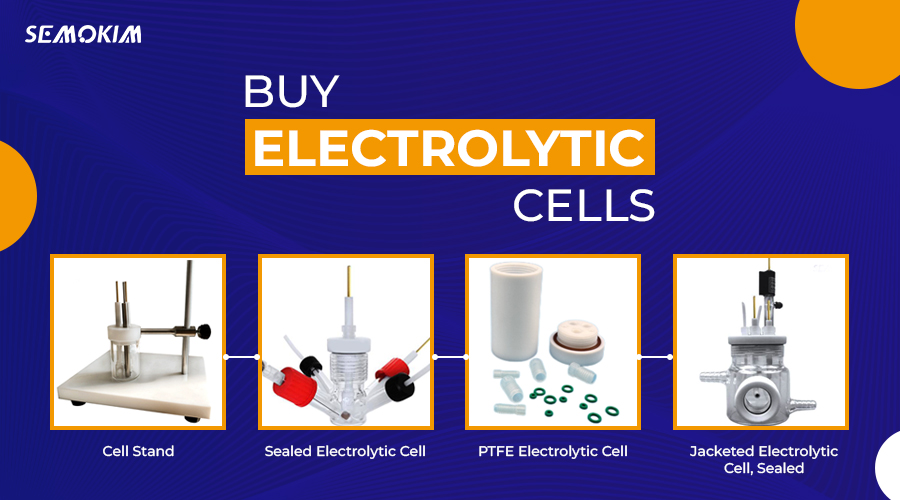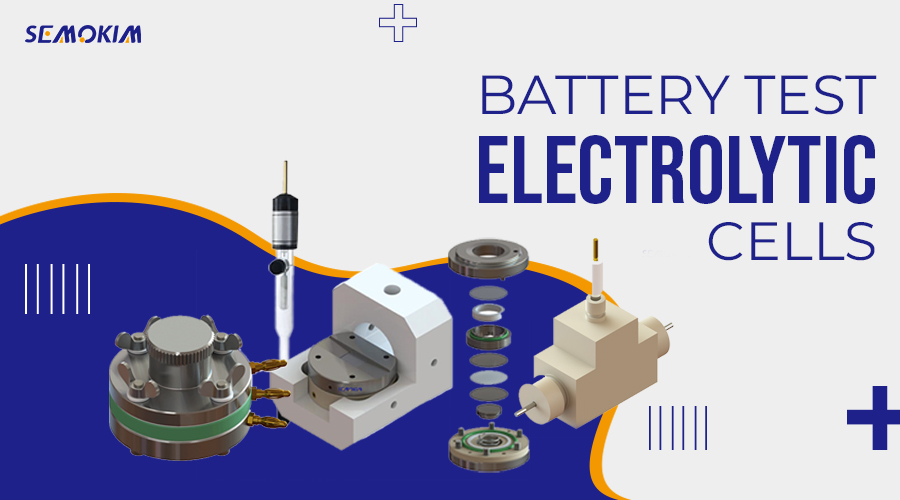


Within the complex field of electrochemistry, Battery Electrolytic Cellsare the foundation of energy retention and transformation. Testing, assessment, and optimization are essential steps whether you are undertaking research or possibly are engaged in the development of new battery technologies. This guide will provide you with everything you must know about the battery electrolytic cells, their components, testing methods, and where to buy appropriate battery test electrolytic cells.
An Electrolytic Cell occupies direct electric current to carry out its chemical reaction. Such a response is not spontaneous in nature. Electrochemical cells generate electric energy with the help of a spontaneous reaction. Battery Electrolytic Cells, on the other side, stimulate electrical energy to activate a chemical progression.
• Electrochemical cells transmute chemical energy into electrical energy (eg, battery).
• Electrolytic Cells: Chemical processes are driven by electrical energy (for example, plating of metal as well as water electrolysis).
• Battery Electrolytic Cells are used for the purpose of gauging battery performance in controlled environments.
• Working Electrode (WE): Actual site for the occurrence of electrochemical reactions.
• Counter Electrode (CE): It helps in completing the circuit and flow of the current.
• Reference Electrode (RE): It is used as a stable voltage reference for the accuracy of measurement.
The electrolyte allows for ion mobility, enhancing the connection between electrodes. The electrolyte utilized during the experiment is selected by its requirements.
An external source of electricity should be used to provide electricity to the electrolysis process. To meet the exact results, the voltage and current must be controlled accurately.
The cell must be made of non-reactive materials to ensure stability during experiments.
SEMOKIM provides a wide range of Electrolytic Cell Parts, such as array composite electrodes, dual-purpose electron microscopy electrodes, and flow thin-layer cells, to meet diverse research needs.

Testing a battery Electrolytic Cell ensures:
• Accurate performance evaluation
• Detection of potential issues like degradation and inefficiency
• Optimization for real-world applications
To conduct effective tests, researchers rely on Battery Testing Tools that measure key performance indicators. Some essential tools include:
These devices manage the voltage and current delivered to the cell, allowing for precise electrochemical evaluation.
Multi-functional instruments used for Battery Test Electrolytic Cells, enabling various electrochemical measurements.
Used to analyze corrosion resistance in battery materials, ensuring durability and longevity.
Designed for investigation into photocatalysis as well as solar energy applications.
• Select the appropriate electrolytic cell and components.
• Prepare the electrolyte solution.
• Set up electrodes in the correct positions.
• Connect the system to a battery testing tool or electrochemical workstation.
Used for investigating redox processes along with assess electrochemical attributes.
Evaluates internal resistance and reaction kinetics.
Measure current or voltage over time to assess reaction stability.
If you've been looking to Buy Battery Test Electrolytic Cells, SEMOKIM is a trustworthy supplier for electrochemical research. They offer:
• A wide range of electrolytic cells and accessories
• Custom solutions for different research needs
• Reliable support for electrical analysis, corrosion studies, fuel cells, and more
If you want reference electrodes, working electrodes, or sophisticated battery testing instruments, SEMOKIM provides excellent alternatives for your research.
Battery Electrolytic Cells play an essential role in electrochemical research, allowing assess and optimize battery performance. With the proper battery testing instruments and accessories, you can carry out accurate and trustworthy investigations. SEMOKIM delivers outstanding Battery Test Electrolytic Cells and other electrochemical research equipment that can be customized to your specific consumer demand.